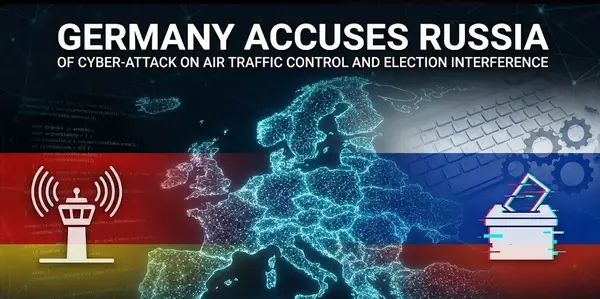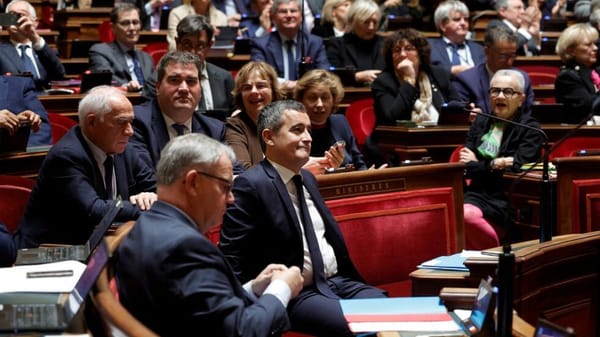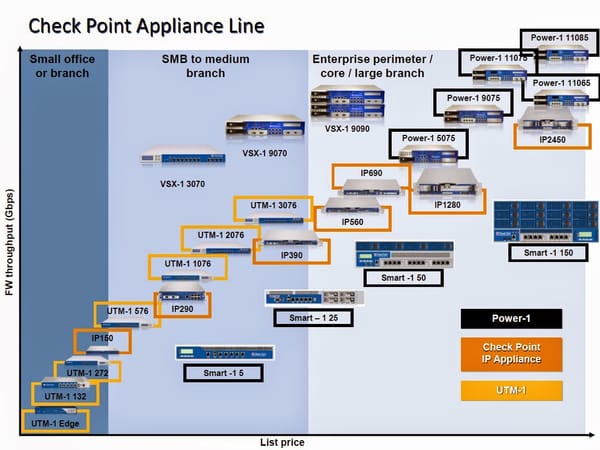Navigating the Geopolitical Tech Storm: Cybersecurity, AI Governance, and Global Power Shifts

Introduction:
The intersection of technology and geopolitics has never been more critical. As nations jostle for influence in an increasingly multipolar world, discussions around tech law, cybersecurity, and AI governance have taken center stage. The Munich Security Conference (MSC) 2025 served as a focal point for these discussions, highlighting the urgent need for international cooperation amidst rising tensions.
The Shifting Geopolitical Landscape:
Several significant geopolitical shifts are reshaping the tech landscape:
- Rising Global Tensions: Increasing tensions among global powers are complicating the implementation of international tech laws. This includes the weaponization of AI through cyberattacks.
- The US-EU Divide: Differing approaches between the United States and the European Union, particularly concerning the Digital Services Act (DSA) and the AI Act, pose adoption challenges.
- US-China Tech Competition: Competition between the U.S. and China in areas like AI and semiconductors is intensifying the race for tech supremacy and reshaping the future of warfare, surveillance, and global influence.
- Expansion of Big Tech's Influence: The growing influence of Big Tech companies impacts global politics, economies, and security policies.
Cybersecurity Challenges in an Unstable World:
- AI-Powered Threats: The rise of AI-powered misinformation, hacking, and cyberattacks contributes to a more unstable global environment.
- Inadequate Accountability: AI-driven cyber warfare is increasing, yet accountability mechanisms remain insufficient.
- Deepfakes and Disinformation: The proliferation of deepfakes and AI-generated disinformation undermines public trust and election integrity.
The Imperative of Global Cooperation and Trust-Building:
- Addressing Power Imbalances: Global power imbalances challenge the enforcement of tech regulations, necessitating mutual trust and equitable power structures.
- The AI Elections Accord: The expiration of the voluntary 2024 pact by major tech firms to combat AI-generated election interference raises concerns.
- Influence Operations: Foreign actors, such as Russia and China, are employing generative AI for influence operations.
- Cost-Efficient AI Models: The emergence of cost-efficient Chinese AI models like DeepSeek raises concerns about democratizing access to advanced tools for malicious actors.
Navigating AI Regulation and European Vulnerabilities:
- Overly Strict AI Regulations: Overly strict AI regulations in Europe risk driving cybersecurity operations to non-EU providers, potentially creating underground AI markets.
- Russia's Use of AI: Ukraine has reported Russia's increasing use of AI to analyze hacked data, thereby enhancing the precision of cyber-espionage.
The Way Forward: Public-Private Partnerships and International Frameworks
To navigate these challenges, the MSC emphasized:
- Global Cooperation: The urgent need for global cooperation, trust-building, and robust international frameworks to address cyber threats and AI ethics.
- Public-Private Partnerships: Emphasis on public-private partnerships to govern AI, advocating for frameworks similar to nuclear safety standards.
Conclusion:
As geopolitical tensions continue to rise, the discussions at the Munich Security Conference 2025 underscore the critical need for a concerted global effort to address the challenges at the intersection of technology and security. The path forward requires fostering trust, establishing robust international frameworks, and promoting public-private partnerships to ensure that technological advancements serve to enhance rather than undermine global stability and security.
Timeline of Events (Covered in Excerpts)
- Pre-1945: Mentions Europe's deadliest war since 1945, providing historical context.
- Early Years of Munich Security Conference (60+ years ago): Establishes the long-standing nature of the conference.
- 1979: Kenneth Waltz publishes Theory of International Politics, formulating views on what constitutes a great power.
- 1999: Baseline year for tracking changes in China's military capabilities (Figure 3.1).
- 2005: Baseline year for tracking the EU's share of key global indicators (Figure 4.1).
- 2009-2023: Five-year periods for tracking India's top arms suppliers (Figure 6.2).
- 2010: Japan becomes a target of Chinese economic coercion.
- 2011: South African Government releases White Paper on South Africa’s Foreign Policy: “Building a Better World: The Diplomacy of Ubuntu.”
- 2013: Croatia joins the EU.
- 2016: Sreeram Chaulia publishes Modi Doctrine: The Foreign Policy of India’s Prime Minister.
- 2017: Mikhail Korostikov publishes "Russia Is the Honey Badger of International Relations."
- January 2021: The UK leaves the EU.
- April 22, 2022: China's Xi proposes "Global Security Initiative."
- September 3, 2022: Anna Clara Arndt and Liviu Horowitz publish "Nuclear Rhetoric and Escalation Management in Russia’s War Against Ukraine: A Chronology."
- December 2022: Japan takes an "ambitious leap" in defense policy, outlining plans to increase defense spending.
- February 23, 2023: David Pilling publishes "South Africa’s Russia Stance Shows It Has Lost the Moral High Ground."
2023:
- China becomes India's biggest trading partner.
- Russia's Foreign Policy Concept proclaims its vision of world order.
- South African Department of International Relations and Cooperation publishes “Framework Document on South Africa’s National Interest and Its Advancement in a Global Environment.”
- Javier Milei makes comments about Argentina leaving the MERCOSUR trade bloc.
- October 2, 2023: Reuters publishes “Everything for the Front’: Russia Allots a Third of 2024 Spending to Defence."
October - November 2023:
Period compared to November 2024 for changes in perceptions of countries as threats or allies.
February 8, 2024:
Steven Friedman publishes “South Africa’s Quest to Retake the Moral High Ground.”
March 2024:
- The Economist publishes “Might Russia Run Out of Big Guns?”
- Marina Nord et al. publish “Democracy Report 2024: Democracy Winning and Losing at the Ballot.”
- Haeck publishes “Russian Propaganda Network Paid MEPs, Belgian PM Says.”
- Nataliya Bugayova, Frederick W. Kagan, and Kateryna Stepanenko publish “Denying Russia’s Only Strategy for Success.”
- IISS publishes “The Military Balance 2024.”
April 2024:
- CSIS publishes “Back in Stock? The State of Russia’s Defense Industry After Two Years of the War.”
- Meduza publishes “In-Demand and Unaccommodated.”
- May 2024: Ryo Nakamura and Rintaro Tobita publish “China’s Drills Appear to Be ‘Rehearsal’ for Taiwan Invasion: U.S. Admiral.”
- June 2024: Robbie Gramer and Amy Mackinnon publish “Russia Ramps Up Sabotage Operations in Europe.”
July 2024:
- Lillis et al. publish “Exclusive: US and Germany Foiled Russian Plot to Assassinate CEO of Arms Manufacturer Sending Weapons to Ukraine.”
- River Akira Davis and Hisako Ueno publish “The Yen Is Plunging. So Is Japan’s Defense Budget.”
- Covert Cabal publishes “Russia’s Looming Serious Tank Shortage: Tank Count Using Latest Bought Satellite Imagery.”
- Derek Grossman publishes “The Philippines’ and Vietnam’s South China Sea Strategies Have Failed.”
August 2024:
- Ministry of Foreign Affairs of Japan holds press conference by Foreign Minister Kamikawa Yoko.
September 2024:
- India's Prime Minister Narendra Modi addresses the Indian diaspora in New York.
- Kaja Kallas, High Representative of the European Union for Foreign Affairs and Security Policy, makes press remarks.
- Japan Says Strongly Alarmed by Airspace Breaches by Russia, China,” Kyodo News.
- Ronald Lamola holds “Address by Minister Ronald Lamola, During the Thucydides Trap – Challenges and Opportunities for Africa, Held at the MISTRA Head Office on 11 October 2024,”
- Cyril Ramaphosa addresses 79th Session of the UN General Assembly.
- Alexander Gabuev and Alexander Stuenkel publish “The Battle for the BRICS: Why the Future of the Bloc Will Shape Global Order.”
- Massicot and Conolly publish “Russian Military Reconstitution: 2030 Pathways and Prospects."
- Ishiba Shigeru discusses Japan's new security era at the Hudson Institute.
October 2024:
- China, Russia, and North Korea grow more belligerent, with North Korean missile tests reaching record levels.
- China and Russia step up military maneuvers around Japan.
- Bank of Russia publishes “Macroeconomic Survey of the Bank of Russia.”
- Bomprezzi et al. publish “Ukraine Support Tracker Data.”
- Mireya Solís publishes “Can the US-Japan Alliance Stay the Course as Japanese Voters Reset Their Politics?”
November 2024:
- The Risk Heatmap and Change Heatmap are assessed.
- Putin holds “Valdai Discussion Club Meeting.”
- “Menacing, but it Changes Nothing’: Strategic Weapons Expert Maxim Starchak Answers Questions About the Experimental Ballistic Missile System Russia Just Fired at Ukraine,” Meduza.
- Nuclear Threat Initiative, “The CNS North Korea Missile Test Database."
- Ben Aris, “Russia Faces a Wave of Bankruptcies as Borrowing Costs Skyrocket.”
- Yuki publishes “Trump Wins: Can the Indo-Pacific Region Withstand?”
- Rich publishes “Lessons for World Leaders From Japan’s Former Trump-Whisperer.”
December 2024:
- Maxim Katz, “К Чему Пришла Экономика России к Концу 2024 Года ,”
- IISS, “Japan and the US Under a Second Trump Presidency With Dr. Sheila Smith and Dr. Jeffrey Hornung.”
- By End of 2025: Japan aims to have long-range missiles for counterstrikes.
- By 2027: Japan plans to increase defense spending to 2% of GDP.
- 2030: Massicot and Conolly's report examines "Russian Military Reconstitution: 2030 Pathways and Prospects".
- 2040: Allianz provides projections on the GDP of South Africa and selected groups of countries.
- February 2025: Publication date of the "Munich Security Report 2025: Multipolarization".





